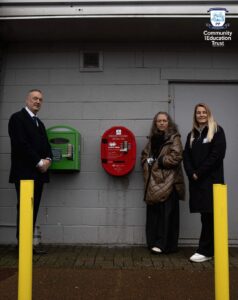Our Approach
One of our aims is for Lancashire to be a trauma informed county. Being trauma informed is not an initiative but a way of being, and part of our culture. This impacts on our beliefs, values, way of life and the way our society is organised. The relationships we form, the language we use and the way we see the environment are all part of our culture.
Lancashire VRN contributes to this aim by:
- Harnessing and sharing resources and good practice on implementing a trauma informed approach
- Supporting the workforce in seeing the benefit of trauma informed practice and developing confidence in working in this way
- Supporting the development of trauma informed practice across Lancashire through a phased approach

Workforce development
Learning from those with lived experiences, working with our communities, and with the public and third sector workforce, we are collaboratively developing our understanding of violence and its relationship to trauma.
We are focusing on the following eight principles:
- Recognise trauma
- Safety
- Avoid re-traumatisation
- Person centred
- Trust
- Collaboration
- Empowerment
- Choice
We are taking a strengths-based approach to address current skills, differentiated knowledge and needs of the workforce.
A trauma informed organisational framework will be shared with partners to build capacity and sustainability within the workforce. This will help to support partners in terms of the process and infrastructure for cultural transformation.

Adverse childhood experiences
The term ‘adverse childhood experience’ refers to a wide range of stressful or traumatic experiences that children may experience while growing up.
ACEs range from experiences that directly harm a child (such as suffering physical, verbal or sexual abuse, and physical or emotional neglect) to those that affect the child’s home environment (including parental separation, domestic violence, mental illness, alcohol abuse, drug use or a family member being incarcerated).
Surveys show that ACEs are very common, with between half and two thirds of respondents experiencing one or more ACE.
A Blackburn with Darwen study showed that the more ACEs individuals experience in childhood, the greater their risk of a wide range of health-harming behaviours and diseases as an adult.
Working in a trauma informed way is part of the jigsaw to addressing some of these issues.
Having ACEs does not define the rest of your physical and psychological wellbeing. What must be remembered is that ACEs can be prevented.



